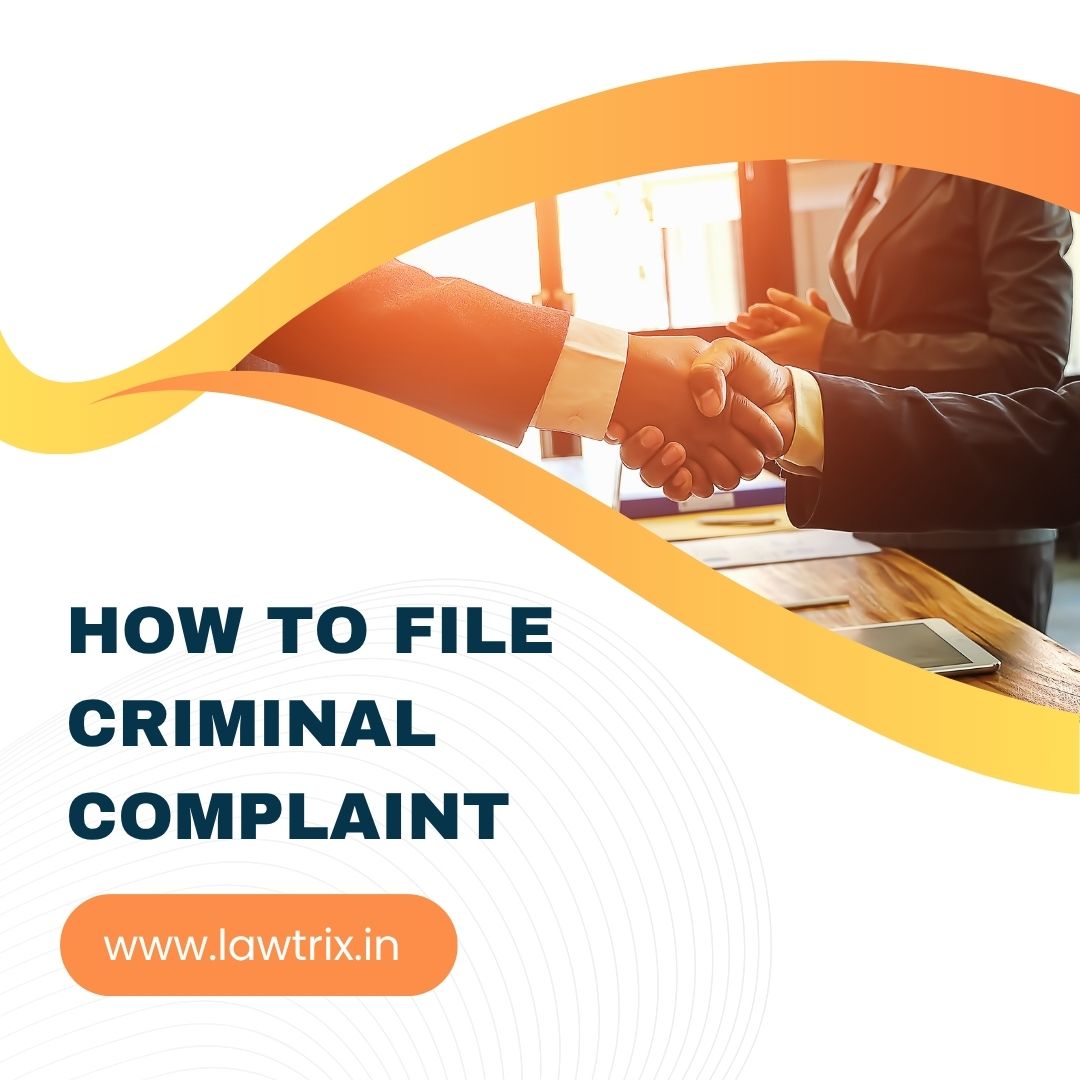


Criminal law in India deals with acts that are offenses against the state and society. When a crime is committed, the victim or any person aware of the offense can initiate criminal proceedings by filing a criminal complaint. This article explains the step-by-step procedure to file a criminal complaint in India and the relevant provisions under the Bharatiya Nagarik Suraksha Sanhita, 2023.
A criminal complaint is a formal allegation made to a Magistrate or police alleging that a person has committed a cognizable or non-cognizable offense punishable under law.
A complaint need not always be filed with the police. It can also be filed directly in a Magistrate’s Court .
If the offense is cognizable (e.g., murder, theft, rape), the first step is to lodge an FIR (First Information Report) at the police station having jurisdiction.
If the offense is non-cognizable (e.g., defamation, cheating), police cannot register an FIR without Magistrate’s permission. In such cases, you can file a complaint directly before the Magistrate.
If the police refuse to act, or the offense is non-cognizable:
Draft a complaint petition describing the incident in detail
Mention:
Date, time, and location of the incident
Name of accused (if known)
Witnesses (if any)
Relief sought (investigation, punishment, compensation)
The complaint must be supported by:
An affidavit affirming truthfulness
List of documents/evidence, if available
Upon receiving the complaint, the Magistrate may:
Examine the complainant on oath
Call for witness statements
Order an inquiry or investigation
Dismiss the complaint if no prima facie case is made out
Issue summons or warrant to the accused
If the Magistrate directs police inquiry:
Police record statements
Collect evidence
Submit a report (charge sheet or closure)
Once the Magistrate is satisfied with evidence, the case proceeds to trial:
Framing of charges against accused
Examination of witnesses and cross-examination
Final arguments
Judgment and conviction or acquittal
| Basis | FIR | Criminal Complaint |
|---|---|---|
| Filed with | Police | Magistrate |
| For | Cognizable offenses | Non-cognizable or any crime |
| Action | Police registers case | Magistrate may direct inquiry |
| Format | Oral/written | Written with affidavit |
Be specific and detailed in your narration
Attach proof and list witnesses
Always keep copies of the complaint
Follow up regularly with the police or Magistrate's office
Filing a criminal complaint in India is your legal right and the first step toward justice. Whether the matter is grave or minor, knowing the correct process ensures your complaint is not dismissed for technical reasons. If your rights have been violated, don’t hesitate to act—approach the appropriate forum and let the law take its course.